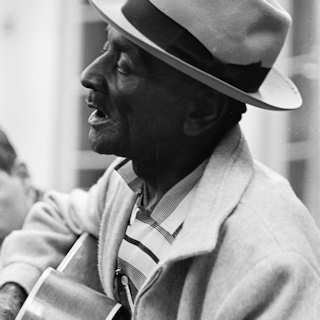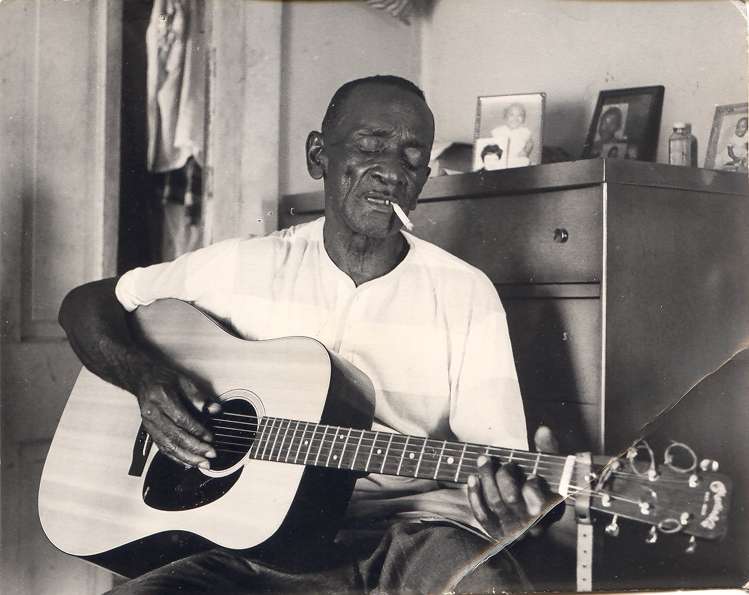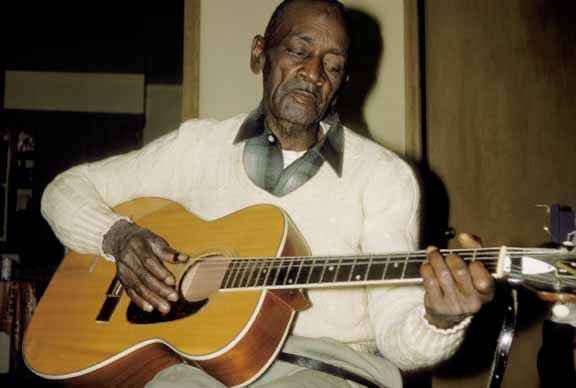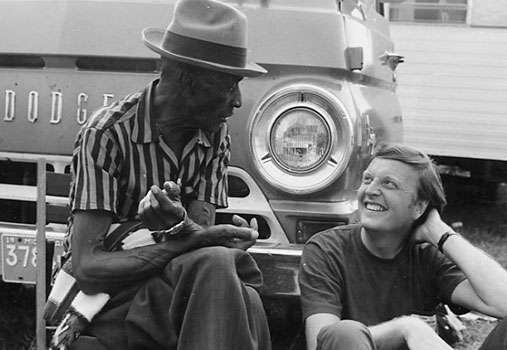<Back to Index>
- Biologist Gregory Goodwin Pincus, 1903
- Bluesman Mance Lipscomb, 1895
- 3rd Prime Minister of Australia John Christian "Chris" Watson, 1867
PAGE SPONSOR


Mance Lipscomb (April 9, 1895 – January 30, 1976) was an influential blues singer, guitarist and songster. Born Beau De Glen Lipscomb near Navasota, Texas, he as a youth took the name of 'Mance' from a friend of his oldest brother Charlie (Mance short for emancipation).
Lipscomb was born April 9, 1895 to an ex-slave father from Alabama and a half Native American (Choctaw) mother. Lipscomb spent most of his life working as a tenant farmer in Texas and was "discovered" and recorded by Mack McCormick and Chris Strachwitz in 1960 during the country blues revival. He released many albums of blues, ragtime, Tin Pan Alley and folk music (most of them on Strachwitz' Arhoolie label), singing and accompanying himself on acoustic guitar. He had a fine finger-picking guitar technique, and an expressive voice well suited to his material. Lipscomb often honed his skills by playing in nearby Brenham, Texas, with a blind musician, Sam Porter Norman. His debut release, Texas Songster (1960) revealed how broad his repertoire was and further sets for Arhoolie made that point in greater detail. Lipscomb happily performed old songs like "Sugar Babe," the first song he ever learned, to pop numbers like "Shine On, Harvest Moon" and "It's a Long Way to Tipperary".
Trouble in Mind was recorded in 1961, and released on a major label, Reprise. In May 1963, Lipscombe appeared at the first Monterey Folk Festival in California. Also on the bill were Bob Dylan, Joan Baez, Pete Seeger, Peter, Paul & Mary and The Weavers.
Unlike many of his contemporaries, he did not record in the early blues era, but his life is well documented thanks to his autobiography, I Say Me for a Parable: The Oral Autobiography of Mance Lipscomb, Texas Bluesman, narrated to Glen Alyn, which was published posthumously, and also a short 1971 documentary by Les Blank, A Well Spent Life.
He died in his hometown of Navasota in 1976, two years after suffering a stroke.

